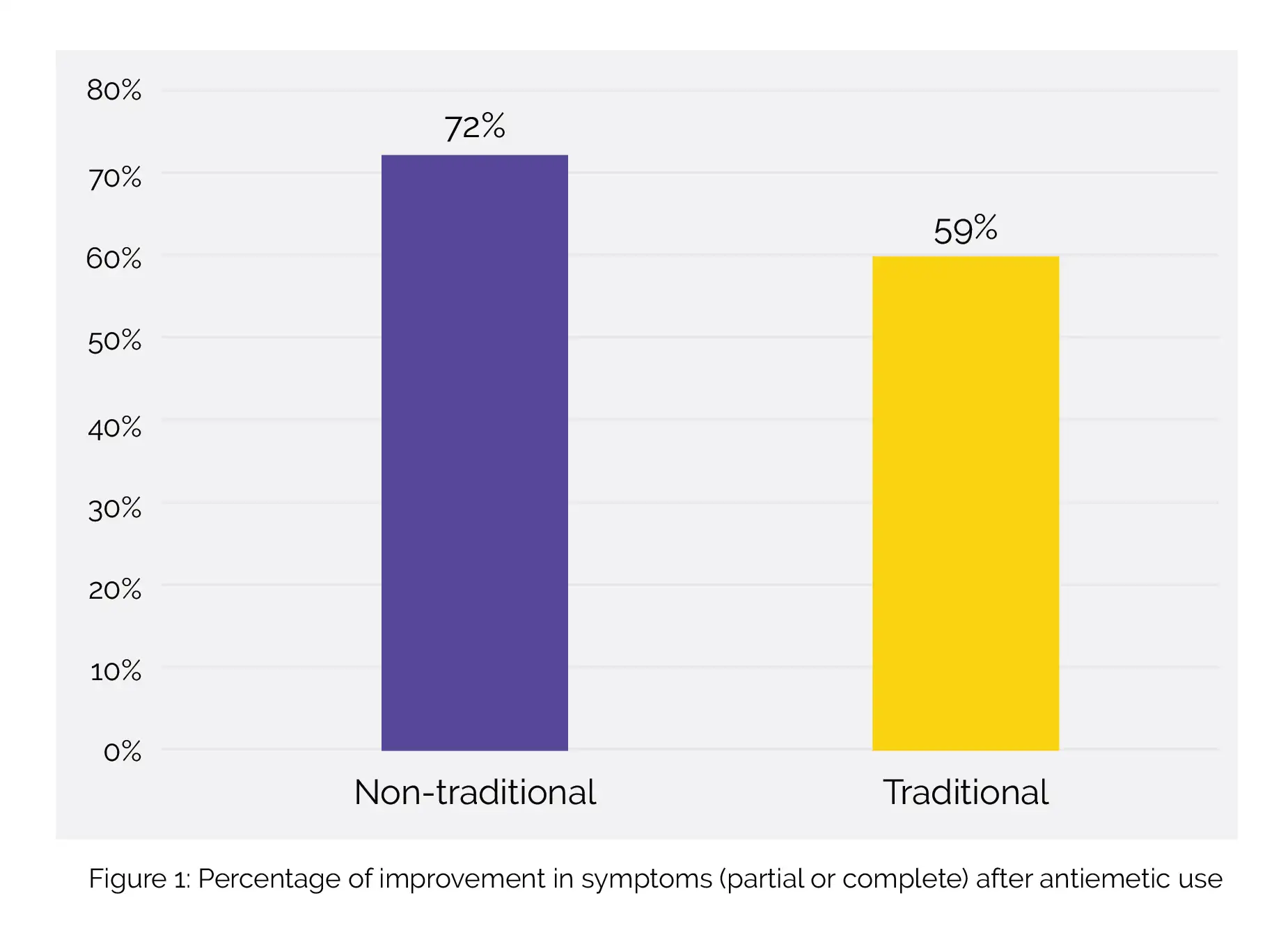Categories
Change Password!
Reset Password!


For the management of pediatric cannabinoid hyperemesis syndrome, nontraditional antiemetics are more effective than traditional antiemetics.
In a study published in the "Journal of Pediatric Pharmacology and Therapeutics", nontraditional antiemetic agents exhibited greater efficacy in alleviating pediatric cannabinoid hyperemesis syndrome (CHS) symptoms when compared to traditional antiemetics. Emily Geraci et al. aimed to identify and evaluate the efficacy and safety of antiemetics in pediatrics with CHS.
The retrospective review of electronic health records was carried out for identifying subjects aged <18 years who fulfilled the diagnostic criteria for CHS, received a cannabis hyperemesis–related diagnosis code, and had inpatient or emergency department encounters. The effectiveness of antiemetics was evaluated based on subjects' objective documentation of vomiting and subjective perception of nausea.
Nontraditional antiemetics included Benzodiazepines, Haloperidol, and topical Capsaicin, while all other antiemetics were categorized as traditional. Nontraditional antiemetic medications seemed to be more efficient in symptomatic control of pediatric CHS than traditional antiemetics. The analysis of all prescribed antiemetics revealed a noticeable difference in the extent of full or partial symptom resolution between traditional and nontraditional agents (Figure 1).

Additionally, there were minimal adverse effects reported. Cannabinoid hyperemesis syndrome is a condition that is not widely acknowledged or correctly identified, and it is marked by recurrent bouts of nausea and vomiting associated with prolonged use of cannabis. The most effective strategy for reducing the associated morbidity is to abstain from cannabis.
Medications like Lorazepam or Droperidol may offer benefits in managing toxidrome symptoms. However, the prescribing of traditional antiemetics remains a significant barrier to effectively managing pediatric CHS.
Journal of Pediatric Pharmacology and Therapeutics
Comparison of Antiemetics in the Management of Pediatric Cannabinoid Hyperemesis Syndrome
Emily Geraci et al.
Comments (0)